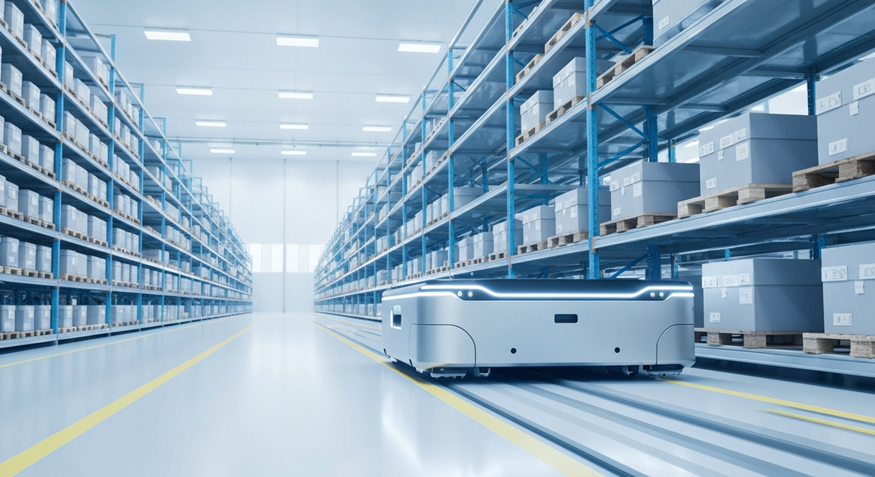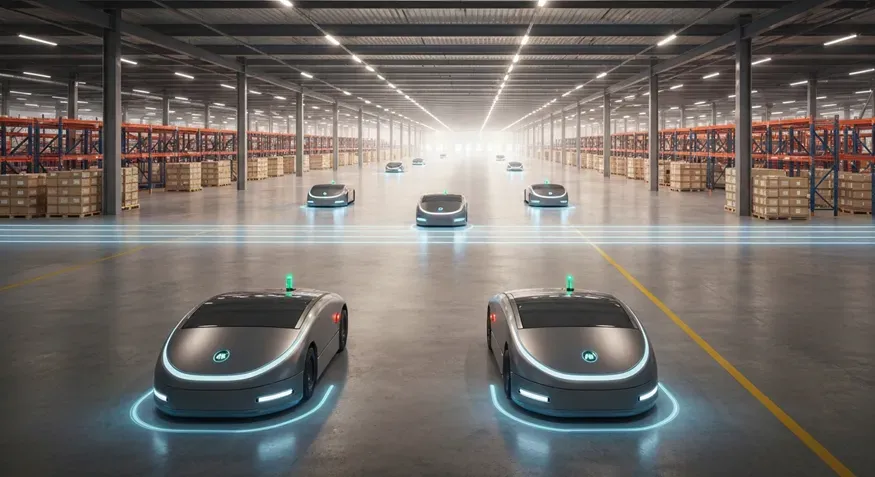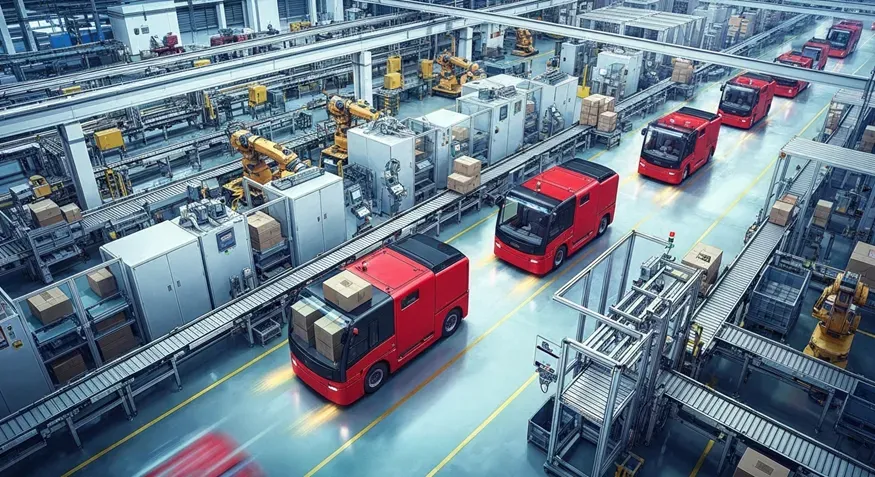What Is Industry 4.0 Short Notes?
What Is Industry 4.0 Short Notes?
Industry 4. 0, which is also commonly referred to as the Fourth Industrial Revolution, is a term used to describe the integration of advanced technologies into various industries. This concept encompasses the use of emerging technologies such as artificial intelligence, automation, Internet of Things (IoT), cloud computing, and big data analytics to revolutionize traditional industrial practices. The aim is to create a more connected and efficient ecosystem where systems and machines can communicate and collaborate seamlessly, leading to increased productivity, reduced costs, improved quality control, and enhanced decision-making capabilities. The implementation of Industry 4. 0 has the potential to transform industries across sectors including manufacturing, healthcare, transportation, energy, and more by driving innovation and enabling new business models. It encompasses the use of automation, data exchange, artificial intelligence, and other emerging technologies to create a more connected and efficient manufacturing ecosystem.
Key Impacts of the 4th Industrial Revolution
The fourth industrial revolution has had a profound and wide-ranging impact on industries across the globe, leading to transformative changes that are reshaping the way business is conducted. The emergence of advanced technologies such as artificial intelligence, robotics, Internet of Things (IoT), and big data analytics has revolutionized various sectors, including manufacturing, healthcare, finance, transportation, and many others. One notable impact of the fourth industrial revolution is increased automation. With the integration of AI and robotics into production processes, businesses are experiencing heightened efficiency and productivity. Repetitive tasks that were previously labor-intensive can now be automated, freeing up human workers to focus on more complex and creative endeavors. Furthermore, the fourth industrial revolution has brought about significant advancements in data analytics. With the availability of vast amounts of data generated by interconnected devices in real-time, companies can leverage sophisticated algorithms to extract valuable insights. This enables them to make informed decisions based on accurate predictions and trends analysis. Additionally, this revolution has facilitated greater connectivity through the proliferation of IoT devices. These interconnected devices enable seamless communication between machines and humans while creating an ecosystem where information can be shared instantaneously across various platforms. This connectivity has paved the way for innovations such as smart cities and autonomous vehicles. Moreover, the 4th industrial revolution has also led to a shift towards personalized experiences for consumers. Through advanced analytics and AI algorithms that understand customer preferences better than ever before, businesses can tailor their products or services to meet individual needs effectively. This level of personalization not only enhances customer satisfaction but also fosters brand loyalty. In conclusion, the impacts of the fourth industrial revolution are indeed far-reaching and transformative for industries worldwide. From increased automation to improved data analytics capabilities and enhanced connectivity through IoT devices - businesses are experiencing remarkable changes that drive efficiency gains while providing personalized experiences for customers. It is clear that this ongoing technological advancement will continue to shape industries well into the future. Some key impacts include increased productivity through automation and robotics, improved efficiency in supply chains through real-time data analysis, enhanced customization capabilities with the help of additive manufacturing (3D printing), and the development of smart factories that can self-optimize their operations.

Industry 4.0 Information PDF
The advent of Industry 4. 0 has ushered in a wave of transformative changes that have had a profound impact on numerous sectors, including manufacturing, logistics, healthcare, agriculture, and energy. This fourth industrial revolution is characterized by the integration of advanced technologies such as artificial intelligence, big data analytics, robotics, and the Internet of Things (IoT). These technologies have enabled unprecedented levels of automation, connectivity, and data-driven decision-making in these sectors. As a result, businesses have experienced enhanced efficiency and productivity while also unlocking new opportunities for innovation and growth. In manufacturing, for instance, smart factories equipped with intelligent machines can optimize production processes and minimize downtime. Likewise, logistics operations now benefit from real-time tracking systems that streamline supply chain management. Healthcare has seen improvements in patient care through telemedicine solutions and AI-powered diagnostics. Agriculture has embraced precision farming techniques that leverage IoT sensors to optimize resource allocation and increase crop yield. Even the energy sector has undergone significant transformation with the adoption of renewable energy sources supported by smart grids for efficient energy distribution. Overall, Industry 4. 0 has revolutionized these sectors by harnessing technology to drive progress and reshape traditional practices for a more connected and sustainable future. Companies are leveraging these technological advancements to streamline their processes, reduce costs, improve product quality and safety standards while also creating new business models.
Industry 4.0 Company Example
The implementation of Industry 4. 0, the latest phase of industrial revolution, can be witnessed through successful initiatives undertaken by renowned companies. Siemens AG has introduced their groundbreaking "Digital Factory" concept, which leverages advanced technologies such as Internet of Things (IoT), artificial intelligence (AI), and cloud computing to optimize manufacturing processes and enhance productivity. Similarly, General Electric has launched their transformative "Brilliant Factory" initiative, which aims to integrate smart technologies like machine learning, robotics, and data analytics to create more efficient and intelligent manufacturing facilities. These exemplary cases demonstrate how Industry 4. 0 is reshaping the manufacturing landscape by incorporating cutting-edge solutions for increased automation and improved operational efficiency. These companies have successfully integrated advanced technologies into their production processes to achieve higher levels of efficiency and productivity.
Industry 4.0 Benefits
The advantages and benefits of Industry 4. 0 are manifold and offer significant value to businesses across various sectors. One of the key benefits is the notable increase in productivity, which ultimately translates into cost savings for organizations. By leveraging advanced technologies such as automation, robotics, and data analytics, businesses can streamline their operations, optimize processes, and eliminate inefficiencies. This enhanced productivity not only helps in reducing operational costs but also enables companies to meet customer demands more effectively and efficiently. Moreover, Industry 4. 0 empowers businesses with real-time data insights that facilitate better decision-making and strategic planning for future growth and sustainability. Consequently, embracing Industry 4. 0 technologies has become crucial for modern businesses aiming to stay competitive in today's rapidly evolving market landscape. It also opens up new opportunities for job creation in areas such as data analytics or robotics programming.
Industry 4.0 Examples PPT
In order to develop a deep and thorough comprehension of the revolutionary Industry 4. 0 concepts and their profound impact on diverse industries, it is highly recommended to seek out industry reports or PDFs that are specifically tailored to this subject matter. These resources can offer valuable insights, comprehensive analysis, and in-depth information that will undoubtedly enhance your knowledge and understanding of this transformative technological trend. By delving into these specialized materials, you will be equipped with the necessary tools to navigate the complexities of Industry 4. 0 and its implications across various sectors. Additionally, there are presentations (PPT) available that provide real-world examples showcasing how different companies have embraced Industry 4.0 principles.
Industry 5.0 PDF
It is worth noting that "Industry 5.0" is a concept that builds upon Industry 4.0 by emphasizing the collaboration between humans and machines in the workplace rather than solely relying on automation alone.
Overall, Industry 4.0 represents a paradigm shift in the way industries operate, leveraging advanced technologies to drive innovation, efficiency, and productivity in the digital age.



